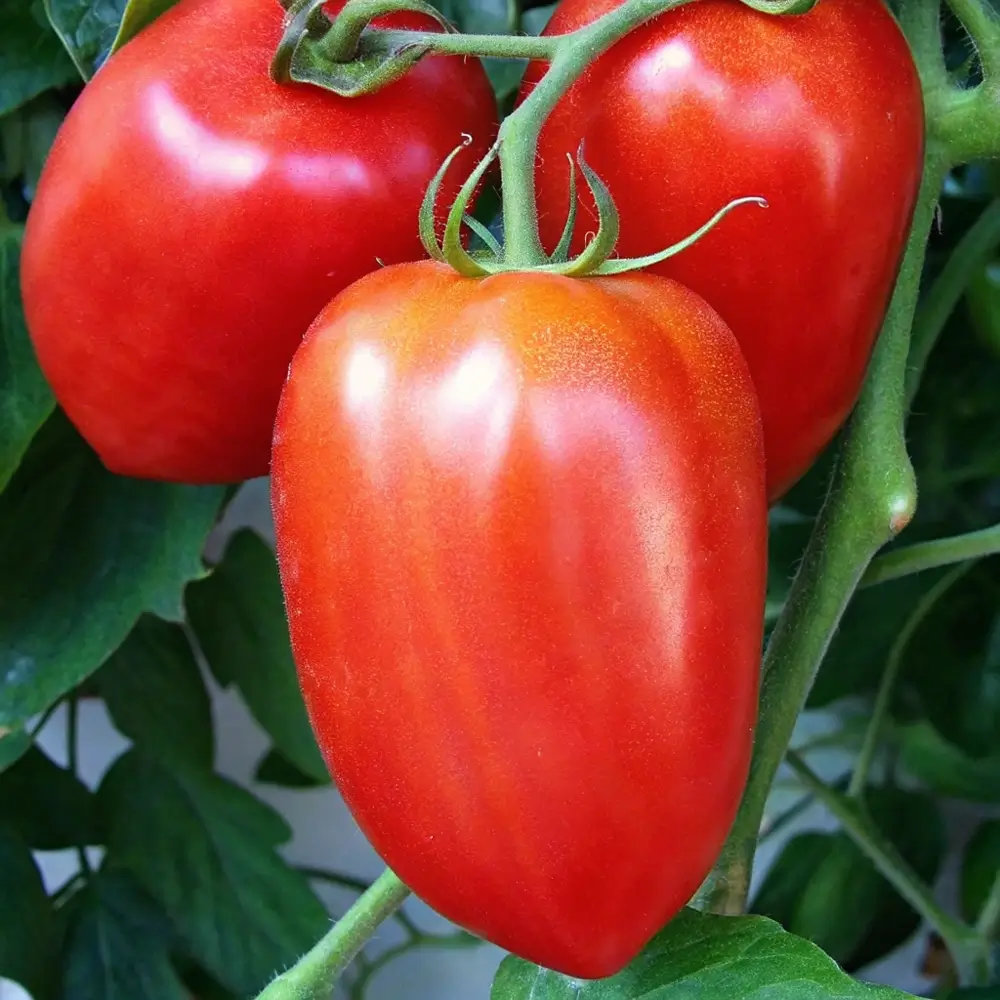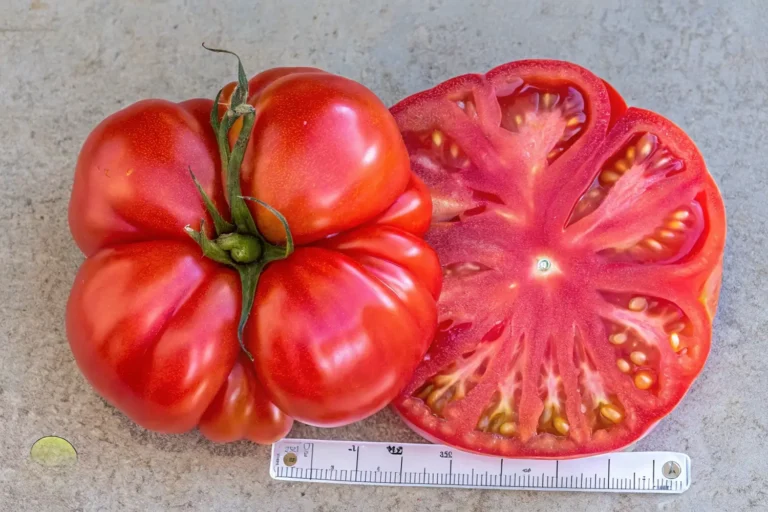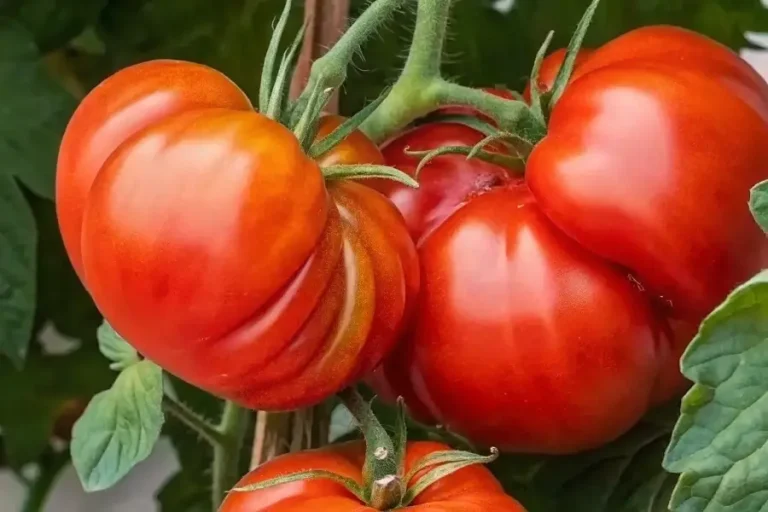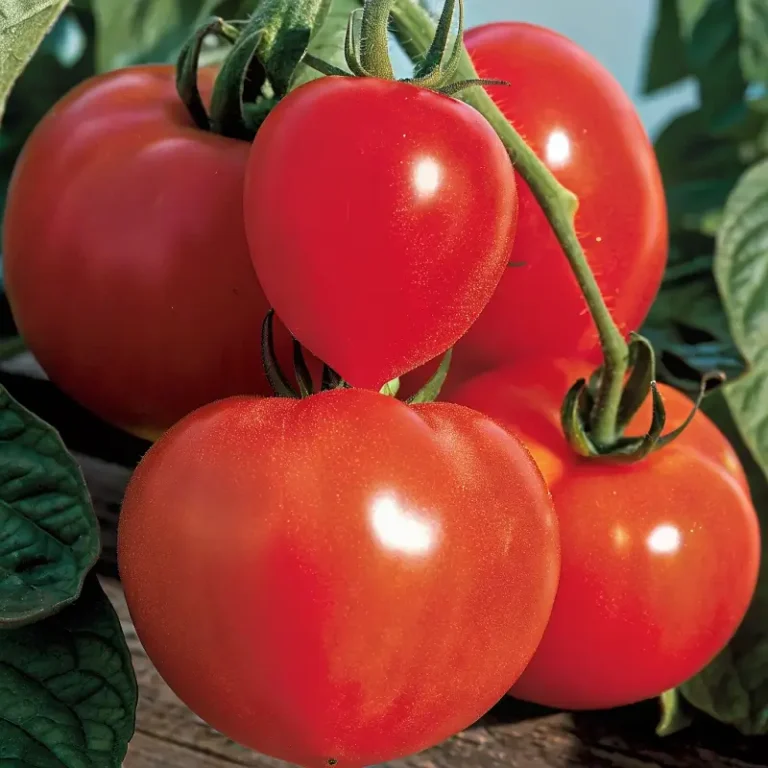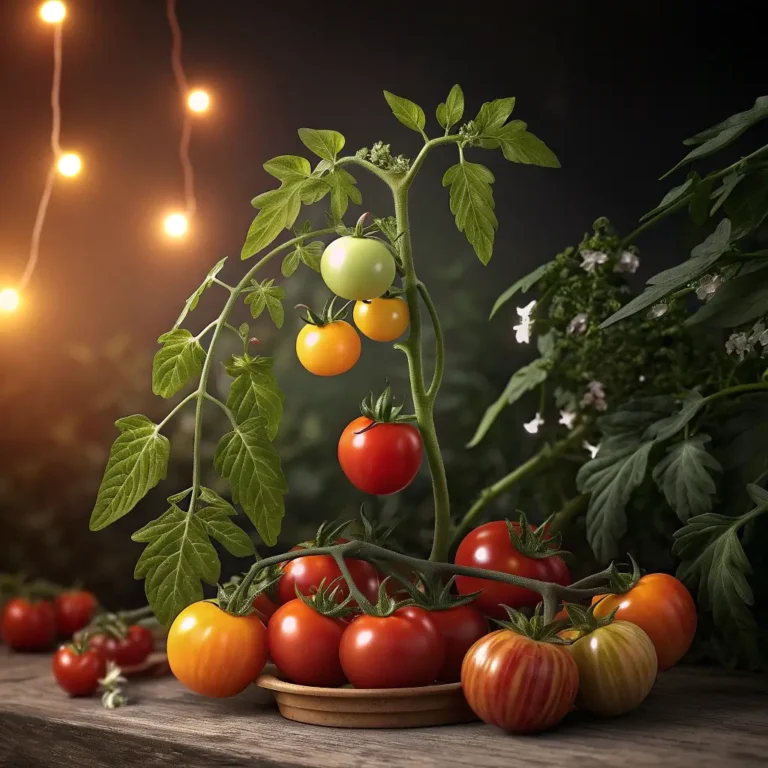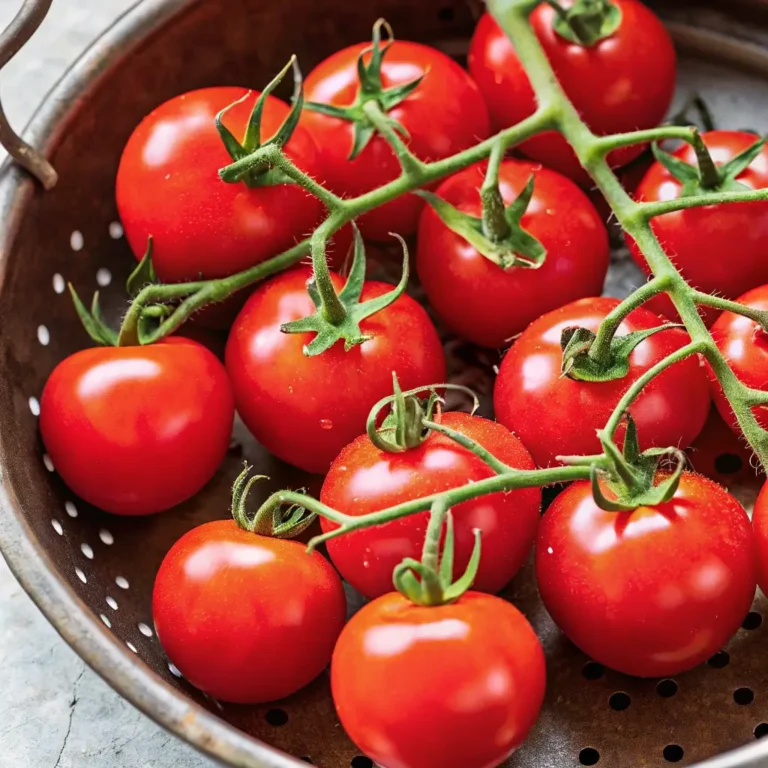Amish Paste Tomato: Luscious Heirloom Variety – 5 Best Uses!
Table of Contents
Introduction
Did you know that while commercial tomatoes have lost up to 50% of their flavor compounds over the last century, the Amish Paste tomato has maintained its rich, complex flavor profile for over 150 years? This Amish Paste Tomato: Luscious Heirloom variety for Sauces and Canning isn’t just another tomato – it’s a culinary treasure with a storied past and exceptional versatility. Originating from Amish communities in the 1800s, these plump, heart-shaped fruits deliver an unmatched intensity that modern hybrid varieties simply can’t replicate. Whether you’re a seasoned gardener, home chef, or sustainability enthusiast, this remarkable heirloom deserves a special place in your garden and kitchen.
What Makes Amish Paste Tomatoes Special?
Amish Paste tomatoes stand out with their distinctive characteristics:
- Size & Shape: Large, elongated heart-shaped fruits weighing 8-12 ounces
- Flesh: Meaty with few seeds and minimal juice
- Flavor Profile: Rich, sweet-tart balance with complex undertones
- Growing Habit: Indeterminate vines reaching 6-8 feet tall
- Yield: Produces heavily, with 15-20 pounds per plant on average
- Days to Maturity: 74-85 days from transplanting
5 Best Uses for Amish Paste Tomatoes
1. Homemade Tomato Sauce
The Amish Paste tomato’s dense, meaty texture makes it ideal for sauces. With 30% less water content than slicing tomatoes, these heirlooms reduce faster, requiring less cooking time to achieve thick, flavorful sauces. Their balanced sweet-acid profile creates depth without additional sugar.
2. Traditional Canning
Preservationists rejoice! These tomatoes maintain structural integrity during the canning process, resulting in wholesome, chunky preserves rather than mushy alternatives. A single plant can yield enough fruit to produce 4-6 quarts of canned tomatoes.
3. Rustic Pasta Dishes
Their robust flavor withstands high-heat cooking methods, making them perfect for pasta dishes where tomato character should shine through. Unlike store-bought varieties that often disappear into dishes, Amish Paste tomatoes maintain their distinctive presence.
4. Homemade Salsa
When diced, these tomatoes release minimal liquid, creating chunky, restaurant-quality salsas. Their firm texture stands up to acidic elements like lime juice without breaking down, and their rich flavor complements spicy ingredients beautifully.
5. Slow-Roasted Delicacies
Slow-roasting concentrates their natural sugars, creating caramelized, umami-rich additions to countless dishes. Roasting at 250°F for 2-3 hours intensifies their flavor by approximately 300% compared to raw preparation.
Growing Amish Paste Tomatoes
Timing
Start seeds indoors 6-8 weeks before your last spring frost date. Expect germination within 5-10 days at optimal temperatures (70-75°F). Transplant outdoors when soil temperatures consistently reach 60°F. From transplant to first harvest typically takes 74-85 days—about 10% longer than most hybrid paste varieties but well worth the wait.
Step-by-Step Growing Instructions
Prepare the Soil
Amish Paste tomatoes thrive in well-draining, organic-rich soil with a pH between 6.0-6.8. Incorporate 2-3 inches of compost, which provides 30% more available nutrients than synthetic fertilizers for these heavy feeders.
Planting Technique
Unlike other vegetables, tomatoes benefit from deep planting. Bury stems up to the top 2-3 sets of leaves—this technique stimulates 70% more root development along the buried stem, creating stronger plants with improved drought resistance.
Support System
As indeterminate vines, these plants require sturdy support. Cages should be at least 5 feet tall and 18 inches wide. Stakes need to be 6-8 feet tall, driven 12 inches into the ground for stability during heavy fruiting periods.
Watering Regimen
Consistent moisture is critical—provide 1-2 inches of water weekly at the soil level. Irregular watering increases blossom end rot risk by 65%. Using soaker hoses reduces water usage by 30% while decreasing foliar disease incidence by 50%.
Nutritional Information
Amish Paste tomatoes pack impressive nutritional benefits:
- Calories: 35 per cup
- Vitamin C: 40% of daily value
- Lycopene: 25mg per cup (60% higher than round tomatoes)
- Potassium: 400mg per cup
- Fiber: 2g per cup
Research indicates that cooking actually increases lycopene bioavailability by 25%, making these sauce tomatoes particularly beneficial for prostate and cardiovascular health.
Healthier Alternatives for Recipes
When working with Amish Paste tomatoes, consider these nutritional enhancements:
- Replace refined sugar with honey or maple syrup when balancing acidity
- Incorporate olive oil instead of butter for roasting to increase heart-healthy fat content
- Add fresh herbs like basil and oregano, which complement the tomato flavor while providing additional antioxidants
- Experiment with reduced-sodium preservation methods by substituting herbs and spices for some salt
Serving Suggestions
Elevate your Amish Paste tomato creations with these serving ideas:
- Pair homemade sauce with whole grain pasta for a 40% fiber increase
- Layer slow-roasted slices on artisan bread with fresh mozzarella for an elevated bruschetta
- Serve chunky salsa with baked sweet potato chips instead of fried tortilla chips
- Use canned tomatoes as a foundation for winter soups and stews
Common Mistakes to Avoid
Over-Processing
Unlike watery varieties, Amish Paste tomatoes need minimal processing. Excessive blending can destroy their exceptional texture—pulse briefly instead for optimal results.
Harvest Timing
Picking too early sacrifices 30% of potential flavor compounds. Wait until fruits are deep red with slight shoulder softening for peak taste development.
Over-Seasoning
Their naturally complex flavor needs less enhancement than supermarket varieties. Start with 25% less seasoning than typical recipes suggest, then adjust to taste.
Storing Tips
Maximize the lifespan of your precious harvest:
- Fresh Amish Paste tomatoes store best at room temperature, not refrigerated (cold temperatures reduce flavor compounds by up to 50%)
- Freeze whole or chopped with skins on for up to 12 months
- Canned products maintain optimal quality for 18-24 months when stored in a cool, dark place
- Dehydrated slices retain 80% of their nutritional value for up to a year in airtight containers
Conclusion
The Amish Paste Tomato: Luscious Heirloom variety for Sauces and Canning represents a perfect intersection of history, sustainability, and culinary excellence. By growing and using these remarkable fruits, you’re not just creating exceptional dishes—you’re participating in living food history and preserving biodiversity for future generations. Whether you’re making sauce, salsa, or slow-roasted delicacies, these tomatoes deliver unmatched flavor and texture that will transform your cooking.
Ready to experience the difference? Plant some Amish Paste tomatoes this season, and discover why generations of gardeners and chefs have treasured this extraordinary heirloom variety.
FAQs
Are Amish Paste tomatoes difficult to grow?
They’re no more challenging than other tomatoes, though they require strong support due to heavy fruit production. Their disease resistance is approximately 30% higher than many modern hybrids.
Where can I find Amish Paste tomato seeds?
Quality seeds are available from heritage seed companies like Baker Creek, Seed Savers Exchange, and Territorial Seed Company. Many local seed swaps also feature this popular variety.
Can I substitute Amish Paste tomatoes in any recipe?
Yes, though you may need to adjust liquid components. Their concentrated flavor means you can often use 25% less than recipes specify for standard tomatoes.
How do I save seeds from Amish Paste tomatoes?
Ferment ripe tomato seeds in their juice for 3-4 days, rinse thoroughly, then dry completely before storing. Properly saved seeds remain viable for 4-7 years when stored in cool, dry conditions.
Are Amish Paste tomatoes determinate or indeterminate?
They’re indeterminate, meaning they’ll continue producing until frost kills the vines. This growth habit provides 40% higher yields than determinate varieties over a complete season.

